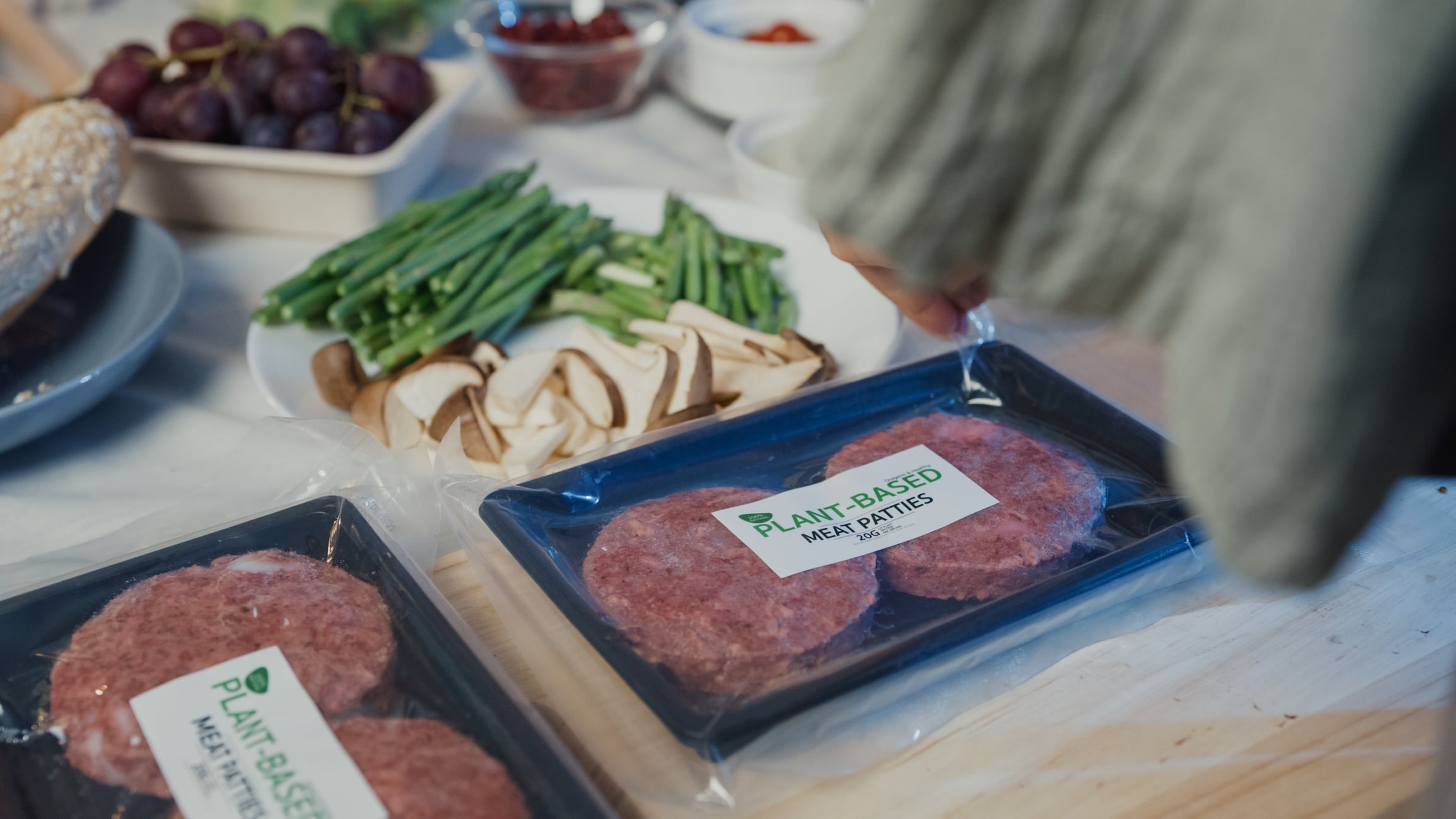Technological breakthroughs, like 3D printing and mycoprotein fermentation, will unlock the next generation of plant-based products at a time when protein demand remains strong worldwide, explained Megan Swartz, R&D manager of global alternative protein at Cargill.
“The demand for protein is growing. Consumers are going to continue to want choices, especially with protein. And so, I think alt protein is here to stay. And Cargill is uniquely positioned to be a leader in this category,” said Swartz.
Whole muscle at price parity ‘would be a game changer’
Cargill diversified its protein portfolio beyond animal-based proteins and invested across the alt protein space, including in companies Enough, Aleph Farms, Wildtype and Upside Foods.
Early last year, Cargill invested in mycoprotein producer Enough’s Series C round, which raised $43.6 million to scale production. This was an expansion of Cargill’s previous partnership, which included the opening of a 160,000-square-foot facility and Cargill supplies Enough with glucose syrup and utilities as part of Enough’s Plenitude project.
Cargill is a stakeholder in the Spanish 3D food printing company Cocuus, which develops plant-based analogs of bacon, salmon and steaks.
Technologies, like 3D printing and mycoprotein, are crucial for creating products that address long-standing challenges to the category — including taste, texture and price parity to animal-based meat — which can renew interest in the category, Swartz noted.
“We can unlock how to deliver whole muscle — and whole muscle at price parity. What that could do for the category would be a game changer,” she added.
Reflecting on progress made and progress to make in plant-based
The food industry already is addressing taste and texture challenges, but many consumers still have a bad impression of the category due to lackluster first-generation products, Swartz noted.
“Everybody saw those first products that were put on the market were not great. And consumers saw it too. They tried them. They didn’t like it. They just were not good. The texture was not great. The taste was not great. And so, people tried them, and they left the category,” Swartz said.
A sensory analysis of more than 1,100 US consumers from Nectar, a part of the philanthropic fund Food System Innovations, found that “consumers do not yet like the average plant-based product.”
Consumers liked plant-based chicken nuggets and tenders the most, with 13% and 11% of consumers, respectively, saying that they like them very much, Nectar reported. However, 41% of consumers disliked plant-based hot dogs very much, and 33% said the same for plant-based bacon, Nectar added.
Alternative proteins 3.0: Balancing consumer demand for health and taste
This story is part of a special collection of articles examining the fast-evolving and examining alternative protein market that was emailed to subscribers.
Check out the full collection: Alternative proteins 3.0: Balancing health and taste.
To receive future special editions via email, register for free for FoodNavigator-USA’s newsletters. Find out more by clicking the yellow “register” button at the top of our homepage or by visiting https://www.foodnavigator-usa.com/Info/Why-register.
The food industry is addressing taste issues with innovative flavor systems and alt protein combinations, Swartz explained.
“Before we were using flavor systems that were developed for traditional animal protein, and it worked well enough in the beginning, but now we are developing flavor systems designed to work in alternative protein products, and they work so much better,” Swartz said.
“If you compare where we were with those first-gen products to where we are today, the category has come so far, and these products taste so much better. If you look at where we are at today versus where we are in three years, you are going to see the same thing,” she added.
Also, protein demand remains strong across the globe, which should propel the plant-based category in the long run as the industry works to address these challenges, Swartz noted. The global protein market is expected to grow from a $27.5 billion in 2022 to $47.7 billion in 2030, according to Statista data.
Next-generation plant-based foods will not look like the ‘bean burgers of yesterday’
A separate emerging trend in the plant-based category emphasizes the plant side rather than the meat side.
The “putting the plant back in plant-based” trend emerged in 2023 as a way to address concerns about plant-based meats being too processed. Whole Foods Market listed the retailer’s top trend for 2024, with products like Meati’s Carne Asada Steaks, Actual Veggies' Green Burger and other products as examples of this trend.
Next-gen plant-based products will not be the “bean burgers of yesterday” and might take time to hit the mark of what consumers expect with taste and format, Swartz noted.
“There are next-gen products that need to be developed still that will satisfy putting the plants back in plant-based. So, there is more to uncover there that just has not been done yet,” she added.





